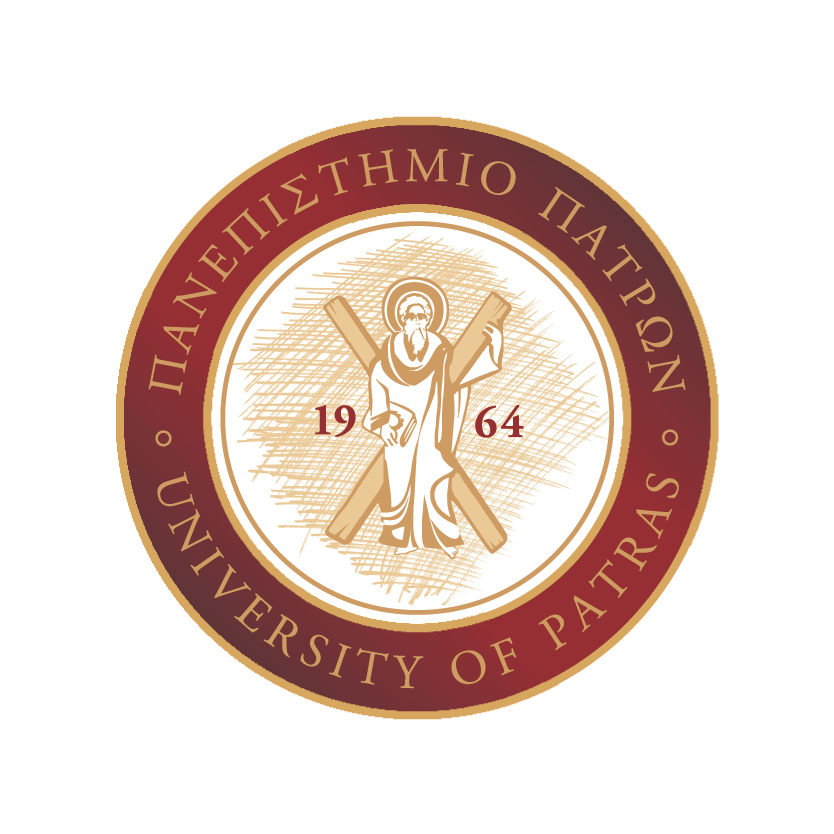Η δραματική τέχνη του Ευριπίδη
Πληροφορίες
Περιεχόμενο μαθήματος
Το μάθημα στοχεύει στην φιλολογική, ιστορική και ανθρωπολογική προσέγγιση του έργου του Ευριπίδη και κυρίως της τραγωδίας Μήδεια, η οποία αποτελεί το βασικό κείμενο του μαθήματος
Προτεινόμενα συγγράμματα
Βιβλιογραφία
Arnott, W. G., ?Off-stage cries and the choral presence. Some challenges to theatrical conventions in Euripides?, Antichthon16 (1982), 35-43.
Battezzato, L., ?Scena e testo in Euripide, Med. 1053-1080?, RIFC 119 (1991), 420-436.
Bongie, E. B., ?Heroic elements in the Medea of Euripides?, TAPA 107 (1977), 27-56.
Burnett, A. P., ?Medea and the tragedy of revenge?, CP 68 (1973), 1-24.
Buttrey, T. V., ?Accident and design in Euripides? Medea?, AJP 79 (1958), 1-17.
Collinge, N. E., ?Medea ex machina?, CP 57 (1962), 170-172.
Cunningham, M. P., ?Medea ?π? μηχαν?ς?, CP 49 (1954), 151-160.
Diggle, J., Euripidea. Collected essays. Oxford 1994.
Diller, H., ?θυμ?ς δ? κρείσσων τ?ν ?μ?ν βουλευμάτων?, Hermes 94 (1966), 267-275
Dunkle, J. R., ?The Aegeus episode and the theme in Euripides? Medea?, TAPA 100 (1969), 97-107.
Dunn, F. M., ?Euripides and the rites of Hera Akraia?, GRBS 35 (1994), 103-115.
Dyson, M., ?Euripides? Medea 1056-1080?, GRBS 28 (1987), 23-34.
Dyson, M., ?Euripides? Medea 926-31?, CQ 38 (1988), 324-327.
Easterling, P. E., ?The infanticide in Euripides Medea?, Yale Classical Studies 25 (1977), 177-191.
Flory, S., ?Medea?s right hand. Promises and revenge?, TAPA 108 (1978), 69-74.
Foley, H. P., ?Medea?s devided self?, Classical Antiquity 8 (1989), 61-85.
Hamilton, R., ?Cries within and the tragic scene?, AJP 108 (1987), 589-599.
Know, B. M. W., ?The Medea of Euripides?, Yale Classical Studies 25 (1977), 193-225.
Lloyd-Jones, H., ?Euripides, Medea 1056-1080?, W?rzburger Jahrb?cher f?r die Altertumswissenschaft, n. F. 6a (1980), 51-59.
Mastronarde, D. J., ?Actors on high: the skene roof, the crane, and the gods in attic drama?, Classical Antiquity 9 (1990), 247-294.
McClure, L., ?«The worst husband»: discourses of praise and blame in Euripides? Medea?, CP 94 (1999), 373-394.
McDermott, E., Euripides? Medea: the incarnation of disorder. University Park, Pennsylvania 1989.
Michelini, A. N., ?Neophron and Euripides?s Medeia 1065-1080?, TAPA 119 (1989), 115-135.
Moreau, A., Le mythe de Jason and M?d?e. Le va-nu-pied et la sorci?re. Paris 1994.
Most, G. W., ?Two problems in the third stasimon of Euripides? Medea?, CP 94 (1999), 20-35.
Mueller, M., ?The language of reciprocity in Euripides? Medea?, AJP 123 (2001), 471-504.
Newton, R. M., ?Ino in Euripides? Medea?, AJP 106 (1985), 496-502.
Page, D. L., Ευριπίδη Μήδεια. Mετάφραση Γ. Γιατρομανωλάκης. Αθήνα, Καρδαμίτσα 1990.
Reeve, M. D., ?Euripides, Medea 1021-1080?, CQ 22 (1972), 51-61.
Rehm, R., ?Medea and the λόγος of the heroic?, Eranos 87 (1989), 97-115.
Seidensticker, B., ?Euripides, Medea 1056-1080? στο M. Griffith και D. J. Mastronarde, Cabinet of the Muses. Essays on Classical and comparative literature in honor of Thomas G. Rosenmeyer. Atlanta 1990.
Sfyroeras, P., ?The ironies of salvation: the Aigeus episode in Euripides? Medea?, CJ 90 (1994), 125-142.
Stanton, G. R., ?The end of Medea?s monologue: Euripides, Medea 1078-1080?, Rheinisches Museum 130 (1987), 97-106.
Στεφανόπουλος, Κ. Θ., Ευριπίδης. Μήδεια. (μετάφραση). Αθήνα, Κίχλη 2012.
Szlez?k, T. A., ?Hikesie und bitte in Euripides? Medea?, Orientalia 59 (1990), 280-297.
Μαθησιακοί στόχοι
Στόχος του μαθήματος είναι η εξοικείωση γενικότερα με το έργο του Ευριπίδη και ειδικότερα με την Μήδεια, που αποτελεί ένα από τα δράματα που άσκησαν ιδιαίτερη επίδραση στην αρχαία και νεότερη λογοτεχνική παραγωγή.
Μέθοδοι διδασκαλίας
Διαλέξεις, φροντιστηριακή διδασκαλία και συμπληρωματική-ενισχυτική εκπαίδευση μέσω ασύγχρονης πλατφόρμας.
Μέθοδοι αξιολόγησης
Μία γραπτή τελική εξέταση.
Προαπαιτούμενα
Κανένα προαπαιτούμενο.
Ομάδα στόχος
Οι φοιτητές του Τμήματος Φιλολογίας που ενδιαφέρονται για την αρχαία ελληνική τραγωδία.
Διδάσκοντες
Μενέλαος Χριστόπουλος, Καθηγητής του Τμήματος Φιλολογίας του Πανεπιστημίου Πατρών.
